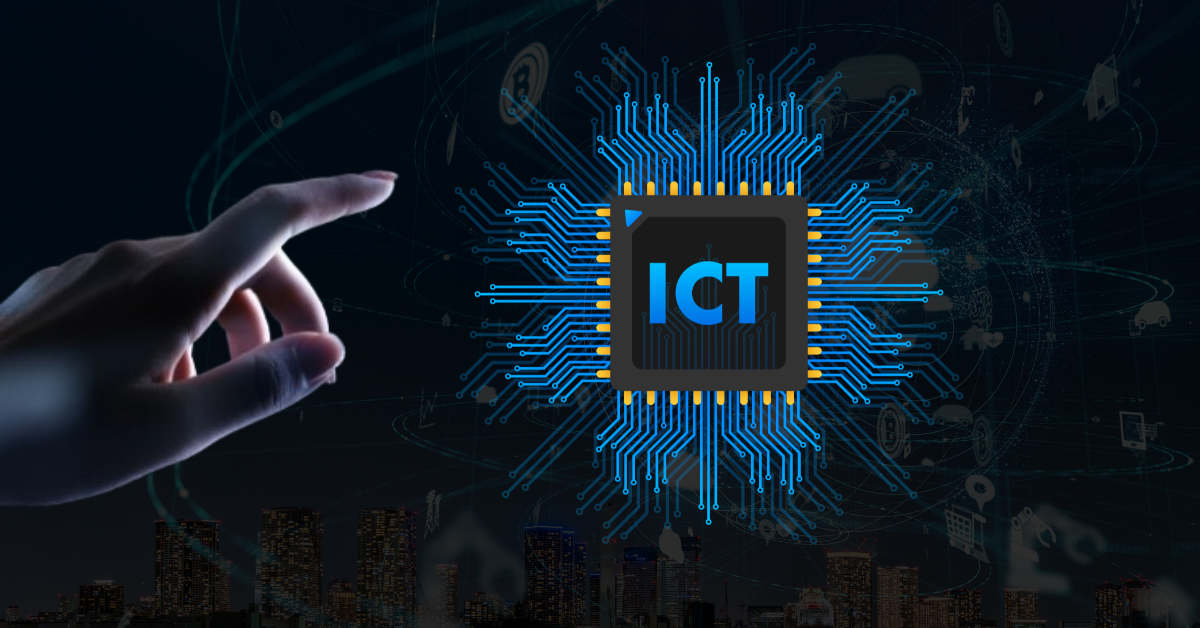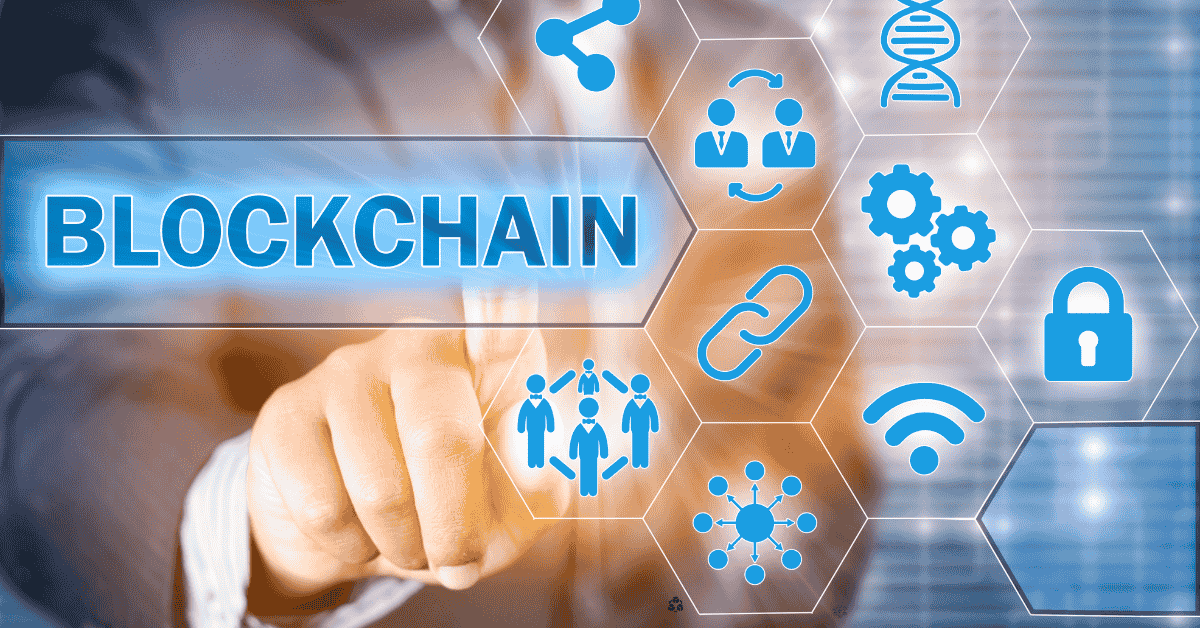ICT introduction
Information and Communication Technology (ICT) has transformed modern communication, learning, and employment. ICT underpins many educational and professional disciplines, thus university students must comprehend it. Students learn everything about ICT in this piece, from its basics to its applications and trends.
What’s ICT?
ICT, or information and communication technology, provides information access derived from telecommunications. It covers computers, networks, the internet, cell phones, and other tools for digital communication.
ICT Evolution
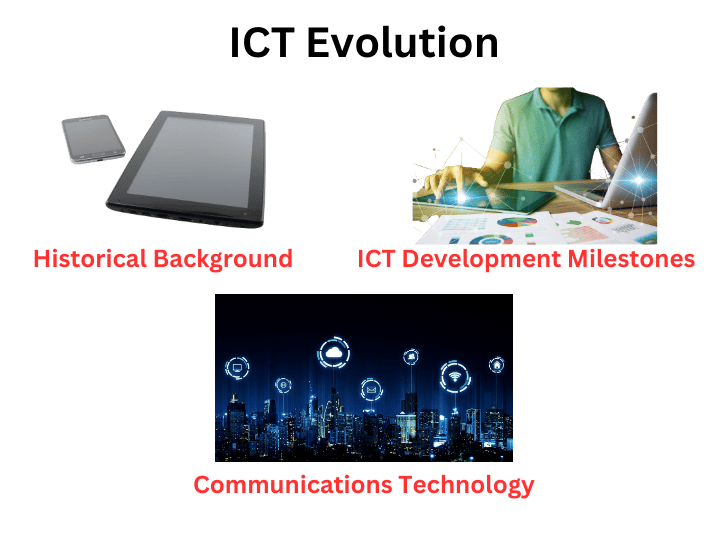
1. Historical Background
ICT began with the telegraph and telephone, which enabled digital communication. Modern ICT was built on computing advances like the 1940s invention of programmable computers.
2. ICT Development Milestones
Important events in the 1980s were personal computers; in the 1990s, the internet explosion; in the 2000s, mobile and cloud computing. These discoveries have expanded ICT.
3. Why Students Need ICT
From commerce to medicine, nearly every career requires ICT knowledge. ICT is taught to students to boost their academic performance and get ready for a tech-driven job.
4. ICT Core Areas: Computing Technology
It uses computers and software for data processing and problem-solving. Computing technology is essential for ICT applications like coding and data processing.
5. Communications Technology
Email, video conferencing, and social networking are communication technologies. It streamlines communication and collaboration.
Basic ICT Concepts
1. Data and info
Data is raw facts, while information is meaningful processed data. Understanding data management, storage, and interpretation is crucial in ICT.
2. Hardware vs. Software
Software runs on computer hardware like the display and keyboard, while hardware is its physical components. They facilitate numerous ICT functions.
3. Using ICT in Education Improves Learning and Accessibility
Educational software and e-books make learning easier and more engaging. They give pupils remote access to resources.
4. Why ICT Matters in Online Learning
Online courses like MOOCs and video lectures have transformed education. ICT allows for adaptable and customizable learning environments for different learning styles.
Industry-wide ICT Applications
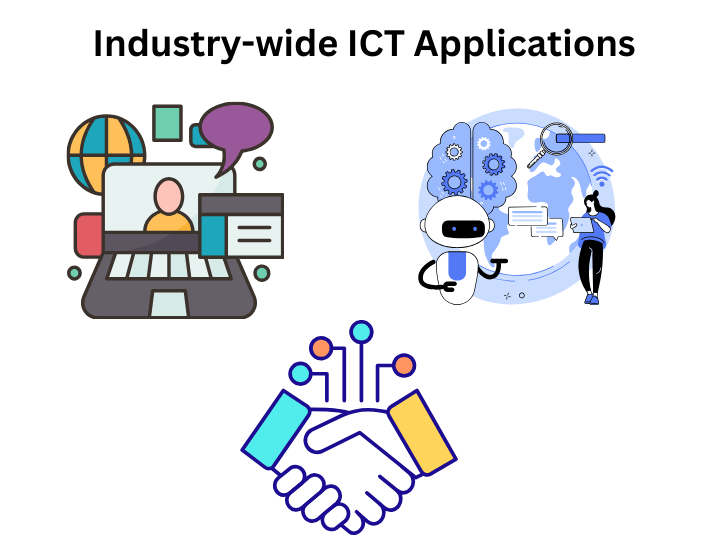
1. ICT in Business
Business uses ICT to improve communication, data management, and customer service. ICT is used for digital marketing, data analysis, and consumer relations by many firms.
2. Healthcare
Healthcare has been transformed by ICT, including electronic health records and telemedicine. ICT helps healthcare professionals securely store and share patient data, enhancing efficiency.
3. Government and Public Service ICT
E-governance, which allows citizens to pay bills and get information online, is provided by government entities via ICT.
4. Typical Student ICT Tools
Word Processing Software: Microsoft Word and Google Docs are crucial for creating and formatting assignments, reports, and research papers.
5. Communications Platforms
Virtual meeting and discussion tools like Zoom and Microsoft Teams are vital for in-person and online learning.
Computer networking in ICT
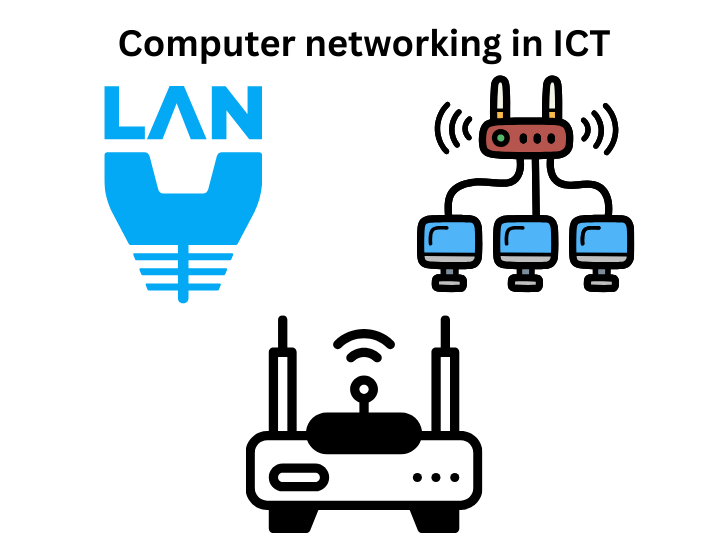
1. Networking Basics
Sharing resources between computers is networking. ICT requires this for device-user data sharing and collaboration.
2. Network types
LANs and WANs serve various purposes. WANs link bigger areas, while LANs serve smaller areas.
3. Internet Role in ICT
The internet connects millions of private, public, academic, and government networks worldwide, enabling global communication and information access.
4. Cybersecurity in ICT Data Protection Importance
With the rise of digital data, data security is crucial. Firewalls and encryption are vital in ICT cybersecurity.
5. Cyber Threat Types
Cyberattacks include viruses, phishing, and ransomware. Users can stay safer online by understanding these risks.
ICT Future Trends
AI is improving machine learning and decision-making. ICT chatbots, recommendation systems, and automated data analysis use AI.
Faster bandwidth and less latency of 5G technology will help applications like virtual reality and the Internet of Things. ICT of the future could feature faster and more safe network technology.
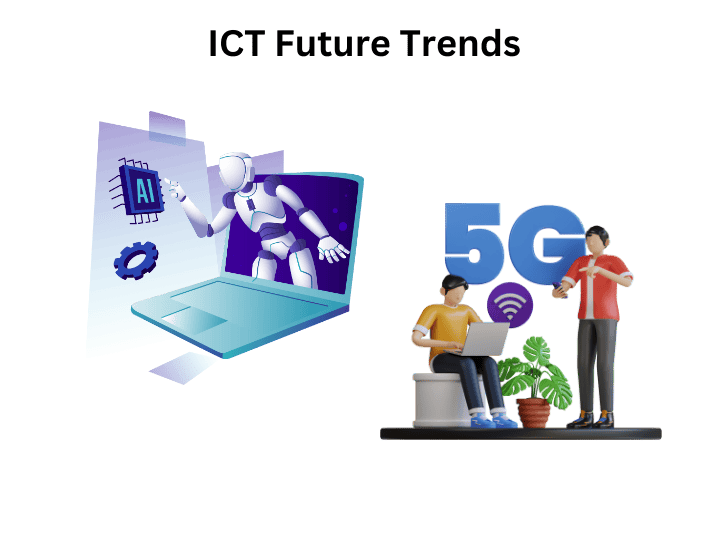
The ICT Challenges
1. Privacy and Ethics
As ICT grows, privacy concerns rise. In today’s ICT world, data protection and ethical issues like data misuse are crucial.
2. Digital Divide
Digital divides result from limited ICT availability. This divide can limit digital participation, notably in education and work.
Conclusion
ICT is constantly changing how we live, work, and learn. Students must grasp ICT to navigate the digital world and prepare for careers. ICT’s impact on education, business, healthcare, and other areas shows its relevance in modern society.
